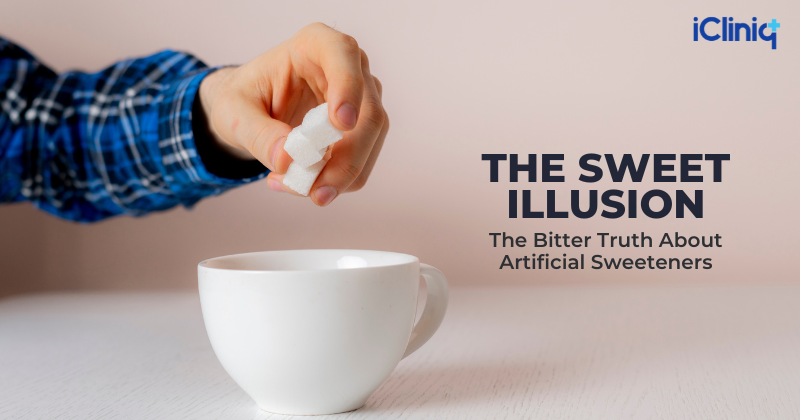We have been led to believe for decades that artificial sweeteners are a better alternative, eliminating sugar but retaining sweetness. Yet recent studies reveal that zero calories don’t necessarily equate to zero effect. Let us deconstruct the true story behind these sugar alternatives and what they may be doing to your body.
The Sweet Illusion: Why Zero-Calorie Isn’t Zero Impact
Zero-calorie sweeteners such as sucralose and aspartame may be free from calories, but they do not pass through your body undetected. They have the ability to interfere with how your body processes sugar, play havoc with gut bacteria, and even cause your insulin levels to spike. Some studies link them to weight gain, diabetes, and heart issues, even if you are avoiding sugar. Everyone’s body reacts differently, so the science is not cut and dry. But it is clear that swapping sugar for artificial sweeteners is not always the clean trade we think it is.
Gut Check: Microbiome May Be the Missing Link
Your gut bacteria play a huge role in keeping your metabolism in check. When sweeteners like saccharin and sucralose enter the picture, they can throw your gut out of balance, a condition called dysbiosis. That imbalance might lead to issues like glucose intolerance, insulin resistance, and even weight gain over time. Aspartame appears to have a smaller impact, but it is not totally innocent. Plus, the effects of these sweeteners seem to worsen when eaten with carbs, making your gut work overtime.
Brain Confusion: Appetite Signals Get Blurred
Artificial sweeteners do more than play havoc with your gut; they can fool your brain as well. Sucralose activates the brain’s hunger center (the hypothalamus) without providing calories, which can trick your body’s natural hunger signals. This effect is especially noticeable in people with obesity. Compared to sugar or even water, sucralose ramps up hunger signals more, which can lead to overeating instead of cutting back.
Cancer Risk Controversy: Where Science Stands Now
The World Health Organization recently added aspartame to its list of possibly carcinogenic substances, which raised a lot of eyebrows. But this doesn’t mean it causes cancer; it just means there’s limited evidence. Other health agencies still back it as safe if you stick to the daily limit. Some long-term studies do link heavy artificial sweetener use to heart disease and stroke, but it’s hard to separate the effects from other lifestyle habits. So, the science is still evolving.
Smarter Swaps: Where Do We Go From Here?
If you’re cutting back on sugar, that is a good move, but not all swaps are created equal. Natural options like stevia and monk fruit come with fewer concerns, though stevia may cause minor side effects in some. The key is moderation.
Read labels, avoid processed junk when you can, and do not treat sweeteners as a license to go overboard. A treat is fine; just do not let it become a staple.
Publisher: Source link










